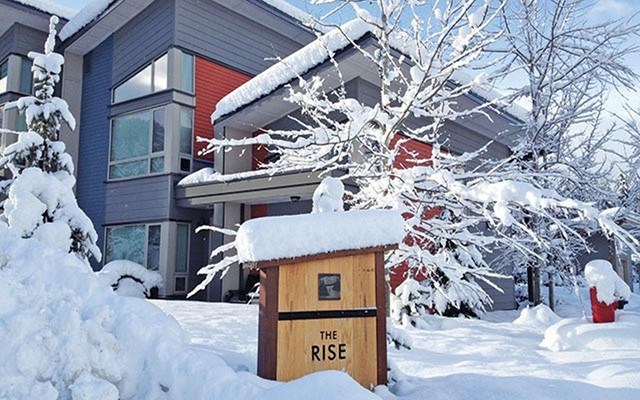For the first time since the controversial heating system was installed, Cheakamus Crossing homeowners are being offered the chance to opt out of the District Energy System (DES).
That was one of the recommendations greenlit by officials on Tuesday, Oct. 3 as part of the latest report on the ambient heating system that has caused some residents a litany of headaches and exorbitant repair costs over the years.
The decision allows any homeowners to begin the process of disconnecting from the system immediately. And although users would end up saving about $50 a month on DES fees, they would still be responsible for all expenses to install a new heating system — something many in the resident-restricted neighbourhood may struggle to afford.
"What about the person who has already spent all this money repairing their system?" asked Jordan Glasser, one of several frustrated Cheakamus residents who addressed council prior to the presentation. "They're opting out because they don't have a choice — they aren't going to continue to invest in an system that they know is going to fail.
"That person has lost out significantly."
For those that stay on the DES, engineering consultants familiar with the system "strongly recommended" in the report that homeowners "take initiative to arrange bulk pricing" for an annual maintenance program that would ideally cut back on costs.
Another recommendation that council ultimately voted to scrap from the report directed staff to explore the possibility of selling the DES to a private company that would manage the system as a utility. Although the proposal was shot down in order to lighten municipal staff's workload, Eric Martin, head of Cheakamus developer Whistler2020 Development Corporation (WDC), said he would look into it as a possible option for homeowners down the line.
If approved, the sale would likely mean higher monthly costs for DES users, but it could also come with an option for residents to lease components of the system from their utility, relieving them of future maintenance costs.
Last October, council voted to lend WDC, a municipal subsidiary, $350,000 to carry out repairs in individual units that required it. That work was broken into two phases: Phase 2 work was intended for units with more significant issues, with WDC paying half of those required repair costs, up to $1,000.
Martin estimated somewhere between 40 and 50 homeowners have participated in Phase 2 so far, with some residents still due for work as the winter approaches.
Also on Tuesday, council approved an amendment extending the deadline for Phase 2 work until May 1.
With the bulk of the Phase 2 work completed, technicians said there does not "appear to be any widespread systemic issues with the DES or the individual home heating systems that are the result of installation or component failure," although they did note there seemed to be a consensus that the initial cleaning and start-up of the systems at the time of installation "may have been lacking."
One of the comments relayed in the report from an Energy One contractor indicated that he did not feel homeowners had "a basic understanding" of the complicated heating system that even certified technicians have seemingly to struggled to comprehend.
Chief Administrative Officer Mike Furey said the onus was on homeowners to ensure they fully understood how to operate their DES unit when they took ownership.
"It's important when you buy a home that you, your real estate agent and your lawyer have a responsibility to do your due diligence," he said.
Given all the issues the DES has caused, Mayor Nancy Wilhelm-Morden was asked if the previous council made the right decision to install the energy efficient system ahead of Whistler's "green" Olympics.
"They were doing it for the right reason; they wanted to reduce (greenhouse gas emissions), and who can argue with that? But it's a very sophisticated system in a resident restricted neighbourhood, and in retrospect it was probably not the best decision," she said.
Pick up next week's Pique for reactions from homeowners in Cheakamus.




